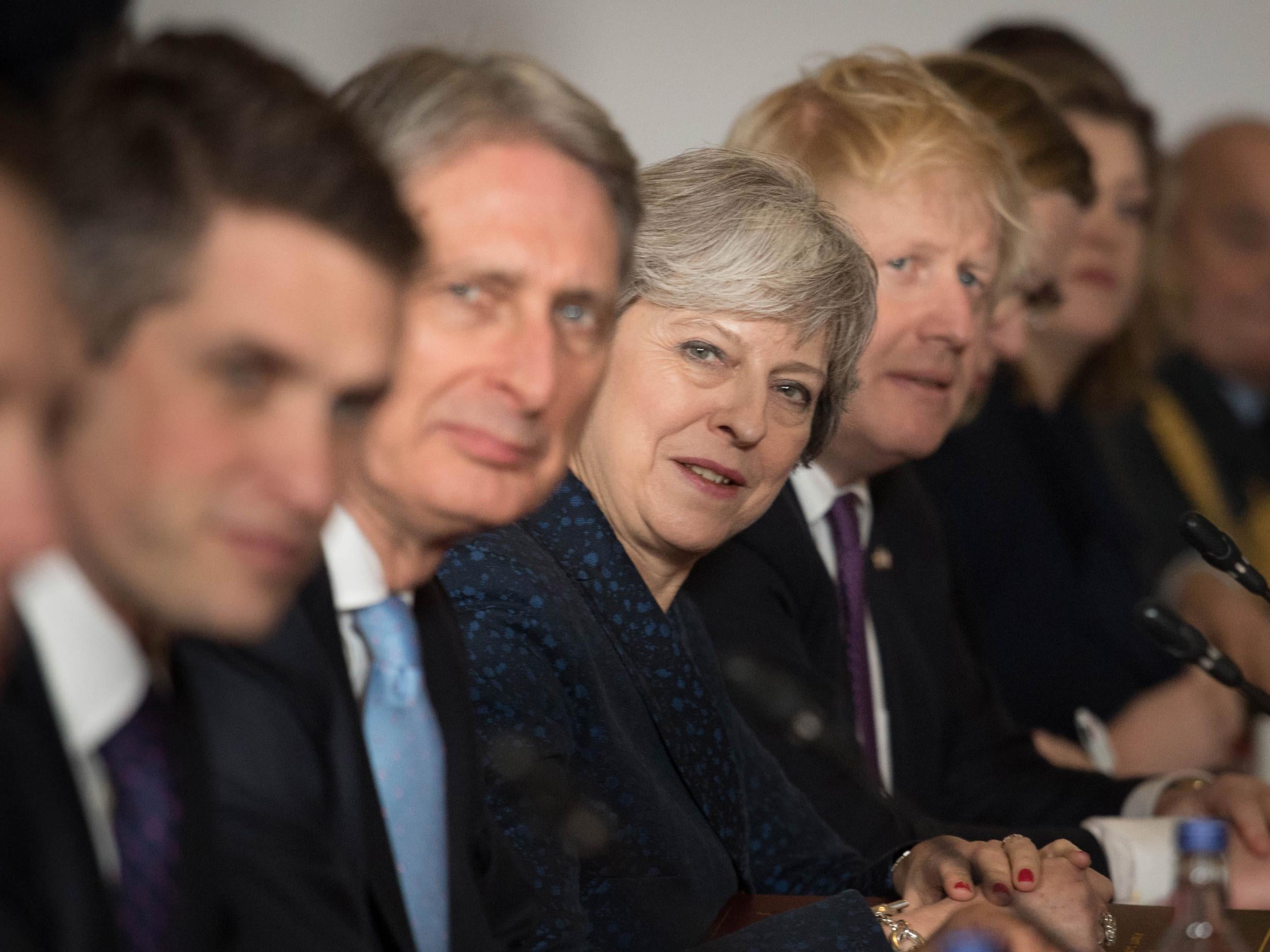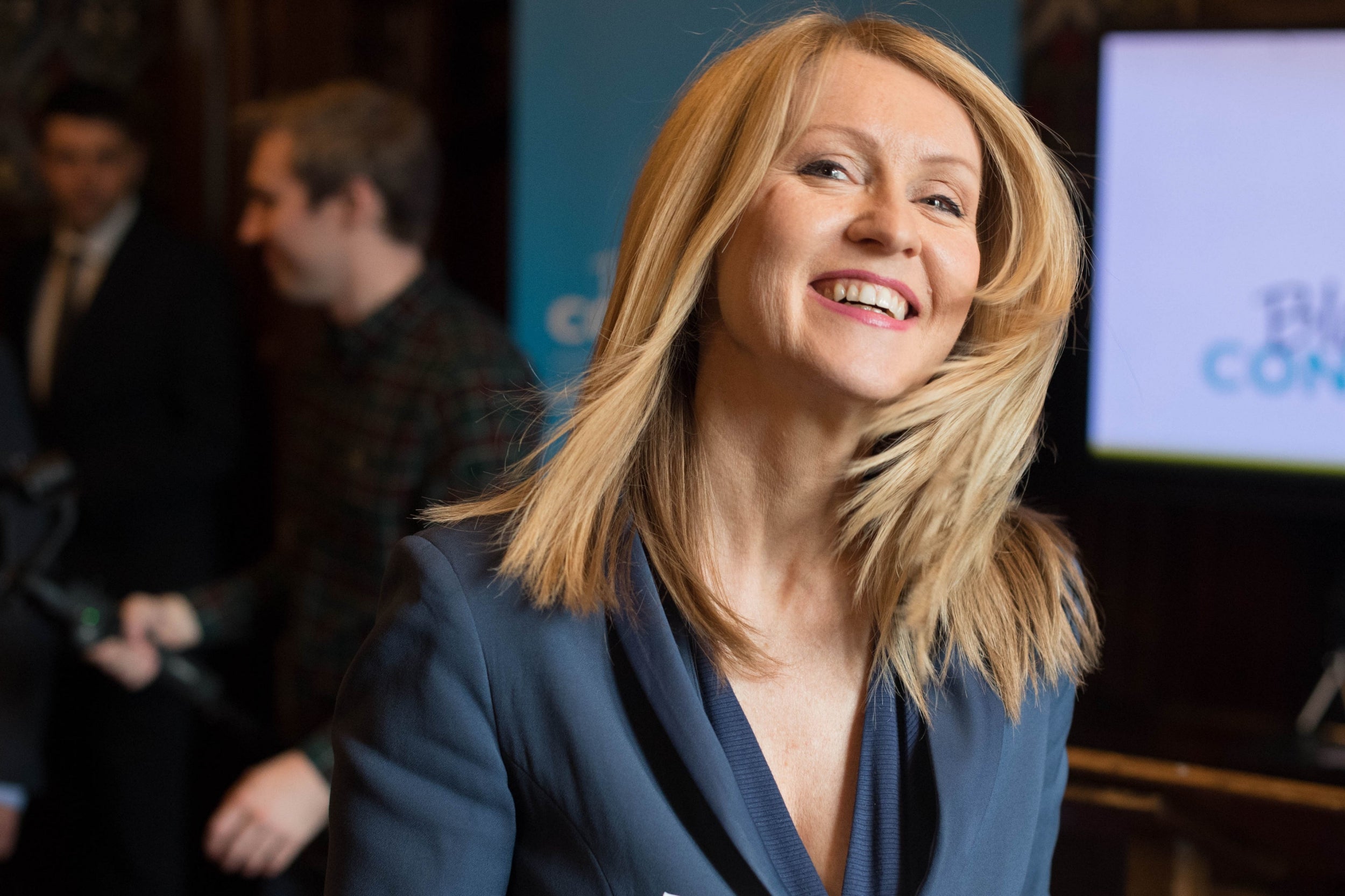Brexit: Chancellor warns of dangers of no-deal, as Cabinet debates 'improved' plan
Rival Conservative factions are vying for influence over the future of Brexit

Your support helps us to tell the story
From reproductive rights to climate change to Big Tech, The Independent is on the ground when the story is developing. Whether it's investigating the financials of Elon Musk's pro-Trump PAC or producing our latest documentary, 'The A Word', which shines a light on the American women fighting for reproductive rights, we know how important it is to parse out the facts from the messaging.
At such a critical moment in US history, we need reporters on the ground. Your donation allows us to keep sending journalists to speak to both sides of the story.
The Independent is trusted by Americans across the entire political spectrum. And unlike many other quality news outlets, we choose not to lock Americans out of our reporting and analysis with paywalls. We believe quality journalism should be available to everyone, paid for by those who can afford it.
Your support makes all the difference.As a furious battle gets under way at the top of the Conservative Party for influence over the future of Brexit, chancellor Philip Hammond is to issue a warning of the dangers of a pivot to no-deal.
The chancellor will tell industry bosses that, despite the collapse of cross-party talks with Labour, the government must keep pressing for a Brexit deal compromise that a majority in parliament and the country can accept.
His warning comes as Cabinet gathers on Tuesday to finalise a new Brexit package which Theresa May hopes will secure her legacy, at the fourth time of asking, as the prime minister who took the UK out of the European Union.
The “new bold offer” promised by Ms May is expected to contain legislative measures to protect workplace and environmental safeguards, as well as pledges of concerted government action to ensure a technical solution to customs issues on the Irish border is in place before the much-criticised “backstop” comes into effect at the end of 2020.
Cabinet will also decide whether to give MPs a chance to take part in “indicative votes” on key issues such as ruling out no-deal or a second referendum before the Withdrawal Agreement Bill package comes before the Commons next month.
In one-to-one meetings with key ministers ahead of the meeting, Ms May is believed to have argued that if her deal falls, it would make a no-deal Brexit, a second referendum or a general election more likely.
With a timetable for the PM’s departure expected within weeks, rival factions are avidly setting out their visions for the party when she is gone.
Leave-supporting Esther McVey made her pitch with a declaration that the new Tory leader must be “a Brexiteer who believes in Brexit”, while her successor as work and pensions secretary Amber Rudd – a former Remain campaigner – vowed to take on “extremists” who offer “falsehoods that are presented as simple choices”.

In his speech to the CBI, Mr Hammond is expected to warn of the dangers of the populism of both right and left and say that the current focus on the risks of a pivot to no-deal must not obscure the even greater risks of a government led by Jeremy Corbyn.
Despite the breakdown of cross-party talks, he will say that no solution is sustainable unless it has a parliamentary majority behind it.
Meanwhile, international development secretary Rory Stewart, who has already declared himself a candidate for the leadership, cautioned the party not to try to “out-Farage Nigel Farage” by pursuing a “dangerous” no-deal outcome, which he said would make Britain poorer.
Their comments will be seen as part of a concerted drive by former Remainers in Ms May’s cabinet to fend off a lurch towards no deal by possible successors such as Boris Johnson or Dominic Raab.
Offering her backing to a new One Nation caucus of centrist Tory MPs, Ms Rudd appeared to take a swipe at Mr Johnson by denouncing politicians who are “more interested in soundbites than sound debate”.
She called for a “moderate, pro-business, low-tax” Conservative Party able to deliver a “pragmatic Brexit”. Moderates must “hold our ground” in the face of inroads made into the Tory vote by Mr Farage’s Brexit Party, she said.
Mr Stewart warned that if the Tories actively pursue no-deal, they will be “saying goodbye to younger voters, people in cities, people in Scotland”.
But Ms McVey, who has declared herself a contender in the upcoming contest, said there should be “no more backsliding” on the UK’s exit, even if it means leaving without a deal on 31 October.
Asked whether her call for Ms May’s successor to be a Brexiteer ruled out foreign secretary Jeremy Hunt, who supported Remain in the referendum but has since garnered a degree of support among MPs by adopting an increasingly Eurosceptic position, she replied: “I said it has to be a Brexiteer who believes in Brexit … It has to be somebody who believes, who has got the passion to drive it forward.”
Health secretary Matt Hancock dodged the question of whether he would stand for the leadership, but told the BBC that Ms May’s successor must put the “absolutely four-square in the centre-ground of British politics”.
Join our commenting forum
Join thought-provoking conversations, follow other Independent readers and see their replies
Comments